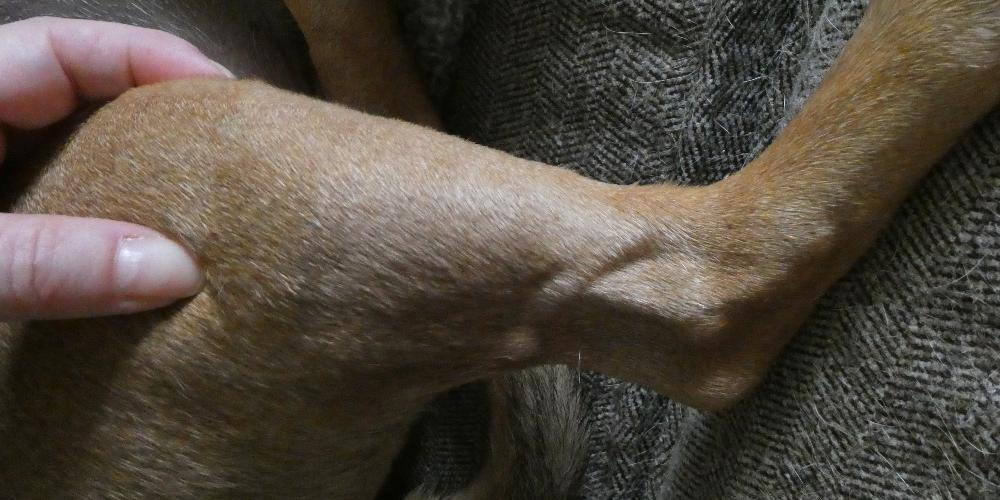Problem Patellas: Kneecap injuries in Dogs and Cats

- posted: Jun. 29, 2019
Problem Patellas: Kneecap injuries in Dogs and Cats
The patella or kneecap is held in place by a tendon and a groove down the center of the femur or thigh bone. The patellar tendon also attaches to the tibia or shin bone. The patella allows the knee to straighten or extend smoothly and helps to protect and stabilize the knee joint.
In dogs and cats, the kneecap can be injured due to trauma or it may luxate or pop out of place if the pet is born with a shallow femoral groove. Many toy breeds have loose patellas that may move in and out of place but that do not cause serious lameness or pain. Yorkshire Terriers, Pomeranians and Chihuahuas are commonly affected breeds and females are more commonly affected than males. Because this condition can be inherited, breeding affected dogs is not recommended.
In other cases, the patella may slip out of place and remain stuck. This situation can cause chronic pain and lameness. Patellar luxation can usually be diagnosed on physical exam when the veterinarian feels the patella sliding out of place when manipulated. In some cases, a radiograph or x-ray may be needed.
Mild cases of patellar luxation do not usually require treatment. Moderate cases may require rest and pain management, but severe or chronic cases where the patella does not return to normal position on its own usually require surgical repair. Surgery involves creating a deeper groove in the femur bone so that the patella can no longer move out of place or sometimes repositioning part of the tibia. Splints or bandages are often unrewarding and are not typically used for patellar injuries.
Luxating patella is less common in cats, but our feline friends can have this issue, too. It is more likely to be caused by an injury than a genetic malformation like we see in dogs.
Of course, other knee problems such as cruciate ligament tears, sprains or other injuries can cause lameness, so, if your dog or cat is limping, it is important to have your vet examine your pet to rule out these problems or confirm that the patella is the problem.
This blog brought to you by the Patton Veterinary Hospital serving Red Lion, York and the surrounding communities.
https://www.petmd.com/dog/conditions/musculoskeletal/c_multi_patellar_luxation
Location
Patton Veterinary Hospital
425 E Broadway
Red Lion, PA 17356
